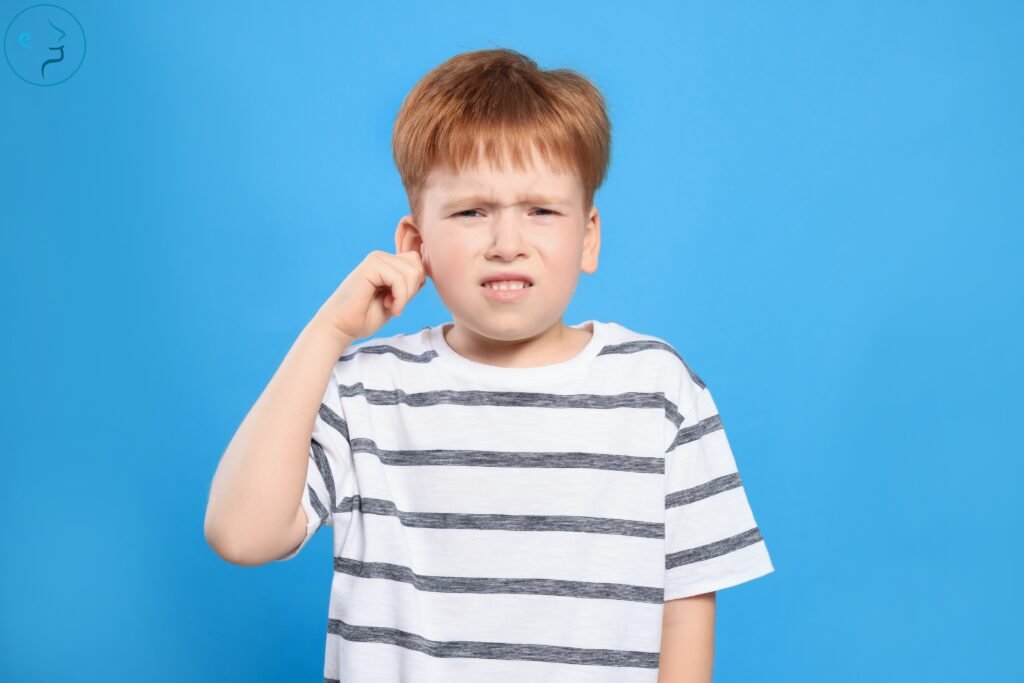
How to Spot the Hidden Signs of Tinnitus in Children
Tinnitus is often thought of as an adult condition, but many parents are surprised to learn that children can experience it too. As a parent or caregiver, recognizing the signs of tinnitus in children is essential, especially since kids might not always know how to explain what they’re hearing.
At our ENT clinic of excellence in Dubai, we’ve helped many families navigate tinnitus in children with expert care from a trusted pediatric ENT specialist Dubai. Understanding the signs and seeking early evaluation can make a real difference in managing tinnitus and preventing further hearing complications.
What Is Tinnitus?
Tinnitus is the sensation of hearing noises like ringing, buzzing, or humming without an external source. In children, this can be confusing or scary because they may not fully understand why the sounds are there. Sometimes tinnitus affects one ear, other times both, and the loudness can vary from barely noticeable to quite distracting.
Common Signs of Tinnitus in Children
Since children may struggle to describe what they’re hearing, watch for these clues:
- Complaints of Ringing or Buzzing Sounds: Kids might say they hear “funny noises” or “sounds that won’t go away,” especially in quiet moments like bedtime.
- Difficulty Concentrating: Tinnitus can make it hard for children to focus in class or while doing homework.
- Irritability or Mood Changes: Persistent tinnitus might cause frustration, mood swings, or unexplained upset.
- Trouble Sleeping: Tinnitus tends to be more noticeable in silence, leading to difficulty falling or staying asleep.
- Covering or Holding Ears: Children may try to block out the internal noise by touching or covering their ears.
- Headaches or Ear Discomfort: Some kids with tinnitus may also complain of ear pain or headaches.
- Avoidance of Quiet Activities: If your child suddenly avoids reading, drawing, or other quiet hobbies, tinnitus might be a factor.
How Can Tinnitus Affect Your Child?
Tinnitus isn’t just an annoyance—it can impact many parts of your child’s life:
- School Performance: Difficulty concentrating can make learning a challenge.
- Emotional Well-being: Anxiety, frustration, or withdrawal can develop if tinnitus is left untreated.
- Sleep Quality: Poor sleep from tinnitus can worsen fatigue and irritability.
What Should You Do If You Suspect Your Child Has Tinnitus?
Early action is key. Here’s how to support your child:
- Talk Openly: Ask gently if they’re hearing any unusual sounds and help them describe what they feel.
- Visit a Pediatric ENT Specialist: At our ENT clinic of excellence in Dubai, our specialists perform thorough hearing assessments to identify underlying causes such as ear infections or hearing loss.
- Explore Treatment Options: Depending on the diagnosis, treatments may include managing infections, sound therapy, or hearing aids if hearing loss is present. We also provide counseling to help children cope with tinnitus.
- Offer Reassurance: Let your child know they’re not alone and that tinnitus is manageable with the right care.
Why Choose Our ENT Clinic for Your Child’s Care?
As a leading ENT clinic in Dubai, we provide specialized care for children with tinnitus and other hearing issues. Our team of experienced ear specialists in Dubai understands the unique needs of pediatric patients and uses the latest diagnostic tools to deliver accurate diagnoses and effective treatments.
Conclusion
Tinnitus in children deserves attention and timely care. If you notice signs like ringing sounds, concentration problems, or behavioral changes, don’t hesitate to seek expert advice. Early diagnosis and treatment at a trusted ENT clinic of excellence can improve your child’s hearing health and overall quality of life.
Contact our ENT clinic today to schedule a consultation with our expert pediatric ENT consultant. Together, we’ll help your child hear clearly and live comfortably.